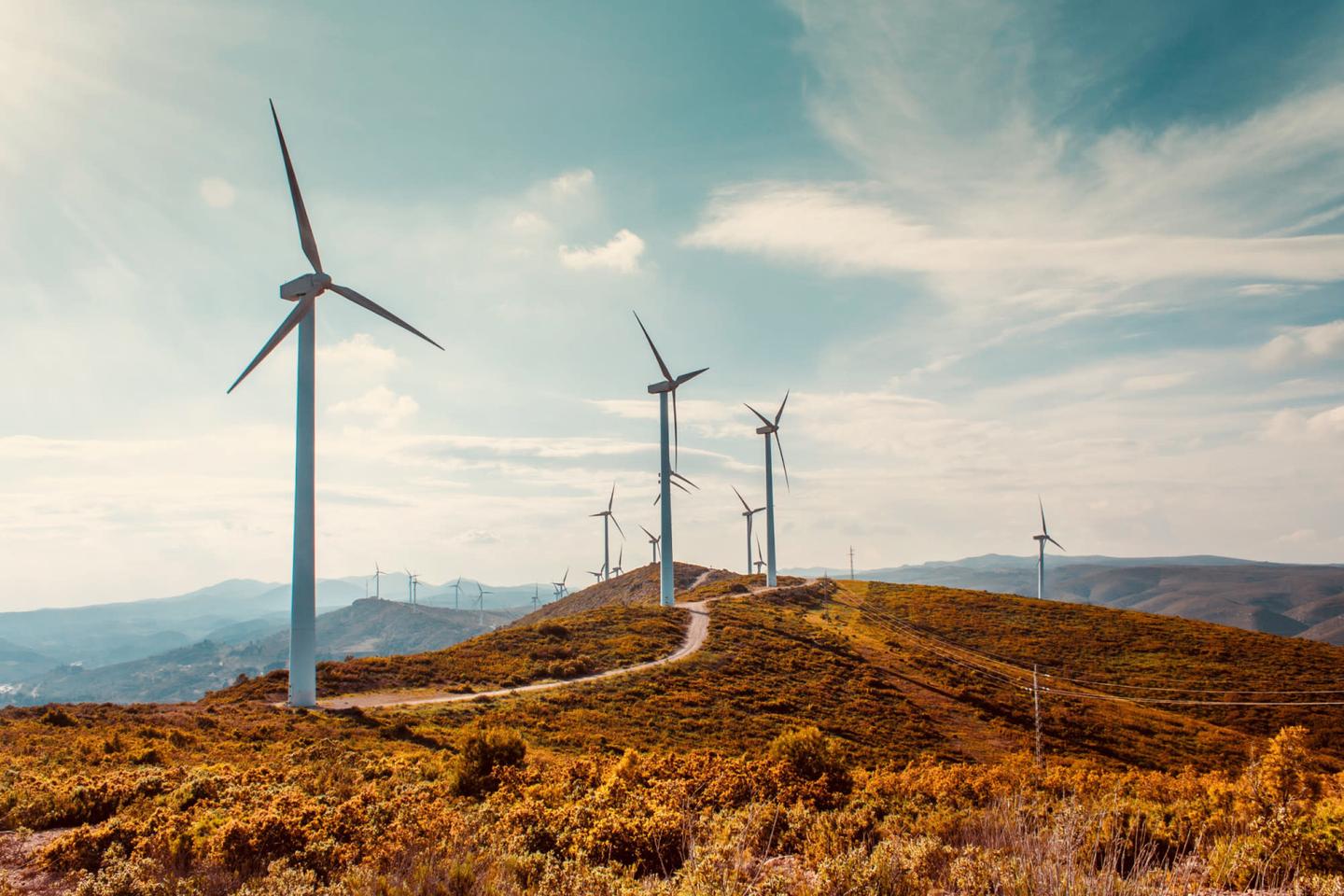Regulatory action and Battery innovation with ACCURE's Dr. Kai-Philipp Kairies
Europe’s energy transition is more urgent and complex than ever, intensified by geopolitical pressures and outdated regulatory frameworks. Central to overcoming these challenges are innovations in battery storage systems and regulatory simplification. Dr Kai-Philipp Kairies, CEO and Co-Founder of ACCURE, is at the forefront of this movement, pioneering digital approaches to improve battery efficiency and safety.

As featured in Futurice’s Digital Energy 40 report, ACCURE’s groundbreaking digital monitoring technologies offer essential solutions to improve Europe's energy storage infrastructure and risk-aversion. In this conversation, Dr Kairies explains how simplifying and accelerating regulatory processes is critical to fully harnessing the potential of battery storage and advancing Europe's energy independence.
What’s your view on the European energy market right now?
We’re currently in a significant period of transformation. Global politics, European energy policy, and geopolitics are more intertwined than ever. We’ve recently witnessed how close we were to a critical supply shortage due to our reliance on Russian gas, which was, ultimately, used as a political weapon.
The situation was mitigated by importing American LNG, but how certain are we that the US will step in again in the future, and under what conditions? This means that many of the certainties Europe once had – about security, energy supply, and geopolitical stability – are being reshaped. Energy policy must adapt to these changes.
I firmly believe that the European energy policy must learn to stand on its own feet. That should be the guiding principle. While there are multiple potential solutions, I strongly believe that the best path forward is the electrification of as many sectors as possible using renewable energy.
Do you see differences in energy transition strategies across different parts of Europe, or would you say there is already a unified EU-wide approach?
The word “strategy” always sounds nice in theory. The real challenge is execution.
If we look at individual countries, they are generally willing to push forward with the energy transition. However, the process often gets bogged down in permitting procedures, grid connections, and regulatory hurdles. What we need is not more strategic papers but rather a fundamental simplification of these processes.
Of course, regulatory frameworks exist for good reasons. However, we now face a situation where we may need to reconsider and reprioritise some of these considerations.
This means making trade-offs. Certain long-standing procedures will need to be streamlined, and that might impact other values we’ve historically held in high regard. But in the end, the goal is to minimise the overall harm to society. This won’t be easy.
How is ACCURE responding to these developments?
We’re just one small supplier in a huge and complex industry. We provide digital solutions for battery storage systems. Our primary contribution is maximising the efficiency of existing assets and improving their safety.
For example, if I have a battery storage system capable of one gigawatt-hour, but inefficiencies mean I can only use 900 megawatt-hours, ACCURE helps unlock the full capacity. This represents a 10% efficiency gain, which, on a macroeconomic scale, can be significant. Of course, it won’t single-handedly “save Europe”, but every improvement helps.
Additionally, our work enhances safety. Recently, there was a massive battery fire in the US at Moss Landing in California and one of the world’s largest battery storage sites, worth nearly a billion dollars was largely destroyed. Incidents like this fuel public opposition. People start saying “not in my backyard”.
ACCURE’s solution, which is recognised by insurance companies, helps mitigate these risks. By continuously monitoring battery safety and health with advanced algorithms – rather than relying on one-time audits at the start of an asset’s life cycle – we substantially reduce operating risks. This level of safety monitoring doesn’t exist in any other asset class today.
I believe this data-driven approach is essential for public confidence and acceptance of energy storage solutions.
What more can the industry as a whole do to future-proof the ecosystem?
One of the biggest challenges is that it was designed to serve a different world. We are used to planning with 40-year investment horizons. That means, in a decision-making context, it doesn’t really matter if something is done today or next week – it barely registers on the timeline.
But we no longer have the luxury of moving slow and steady. Today, geopolitical events can shift supply chains within months, not decades.
While the industry consists of highly skilled professionals and well-structured organisations, it lacks efficiency. Decision-making is slow, involving endless committees. These processes were designed for long-term stability, not rapid innovation.
The sector must adopt more of a startup mentality. Otherwise, we will fail to deliver the services society urgently needs in time. It’s no longer about avoiding mistakes, it’s about keeping up with the pace of the rapidly changing world.
What support or action do you want to see from the government/the EU?
Governments must simplify regulation and speed up approval processes. Energy security is now a geopolitical issue. We have already wasted too much time – it's time to start cranking.
Who are your ‘ones to watch’ in the European/Nordic/German/UK energy market?
A company that really impressed me recently is Grid Raven, which focuses on real-time grid monitoring.
On the negative side, I feel less optimistic about European battery manufacturing. It takes a decade to build the experience and ecosystem to build batteries at scale. The current market prices set by CATL, and others, make it practically impossible for newcomers to catch up. This also has geopolitical implications, as batteries are an essential part of drones which have become one of the main means of national defence.
What are your personal motivations and goals for energy transition?
I chose this path consciously at age 18 and still believe energy is fundamental to prosperity, security, and peace.
Even though I sometimes feel disillusioned about global climate efforts, I remain deeply committed to improving energy resilience and affordability for all.
Europe’s clean energy transition requires more than just ambitious targets and technical innovation. It demands decisive regulatory simplification, digital solutions that enhance battery efficiency and safety, and a proactive approach to overcoming the sector's inherent risk aversion. From real-time monitoring to improved asset utilisation, digitally driven battery management solutions will be fundamental in building a secure, independent, and resilient European energy future.
To explore further how digital innovators are transforming Europe's energy landscape, download the Digital Energy 40 report and meet the leaders shaping the next chapter of clean energy.
 David MitchellChief Growth Officer
David MitchellChief Growth Officer





